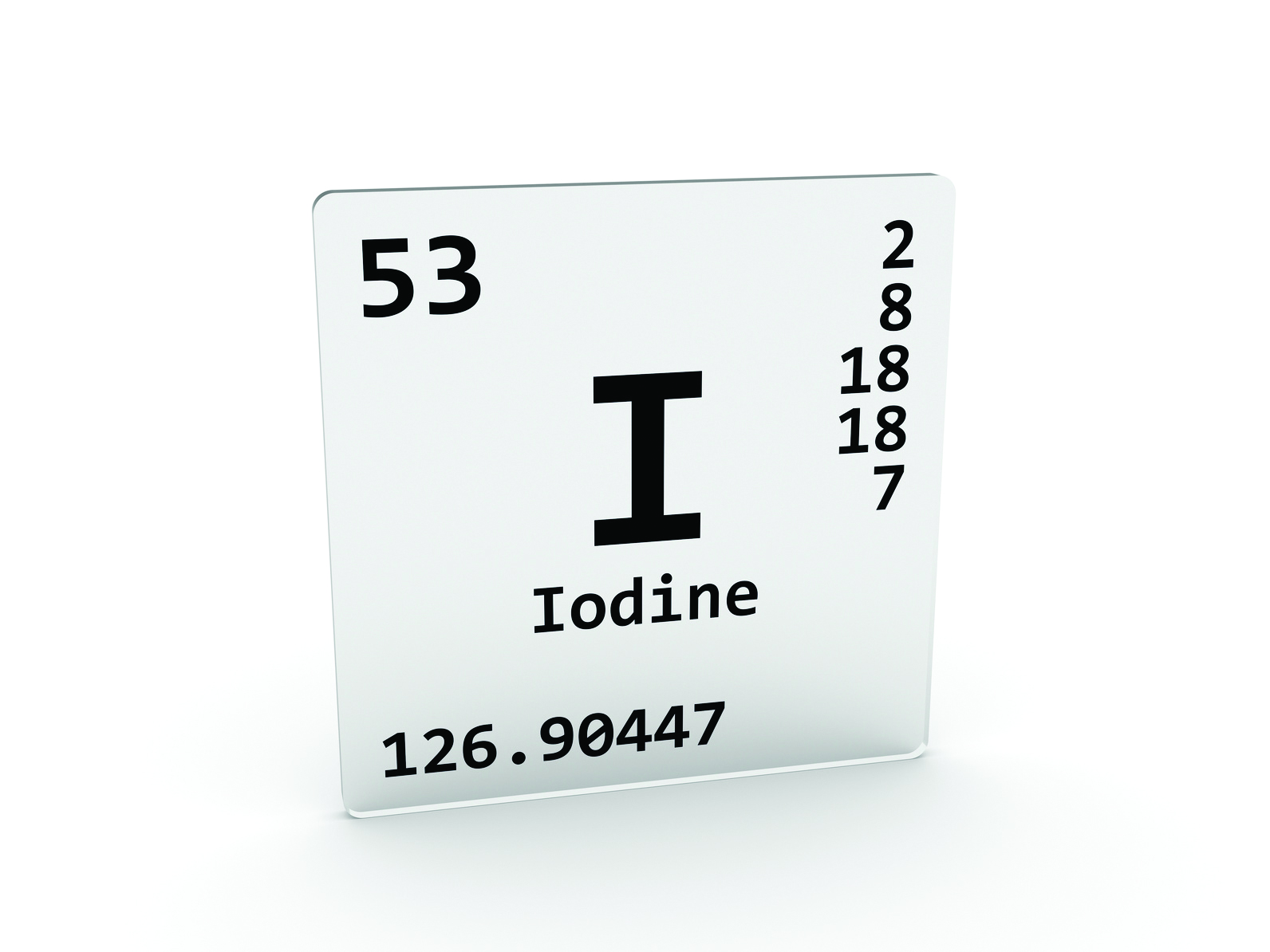Iodine is a crucial trace mineral the body uses for the production of thyroid hormone, and without enough of it, a person can become hypothyroid. Most Americans don’t get a lot of iodine in their diet, in part because it’s present in foods we rarely consume, such as seaweed and fish. But we can get enough iodine in the daily diet by using iodized salt and by taking dietary supplements. Often, people choose to take high doses of iodine to support healthy thyroid function. However, we encourage people to take selenium when they take iodine.
It’s important that iodine passes through the thyroid follicular cells without being oxidized. Selenium is part of the glutathione peroxidase enzyme that helps with that process. Studies show that in people with autoimmune thyroiditis, supplementing with selenium helps reduce the autoimmune antibodies thyroid peroxidase and thyroglobulin. It may also reduce proinflammatory cytokine secretion. Without adequate selenium, the T cell and cytokine response may veer towards inflammation and autoimmune response.
Unfortunately, selenium deficiency is common and is one of the most frequent causes for an autoimmune response in reaction to iodine supplementation. It’s no surprise that research shows a high prevalence of selenium
When people are low in selenium, the iodine they ingest may get oxidized in the follicular cells which can contribute to oxidative damage and autoimmunity. A research review published in 2015 pointed out how iodine supplementation can increase autoimmune thyroiditis, particularly in iodine-deficient populations. The study also pointed out that in people with a genetic predisposition to autoimmune thyroiditis, there is a higher likelihood of reacting to high-dose iodine therapy. In this case, excess iodine can increase cytokine secretion, which can trigger an immunostimulatory response in T cells.
Physicians practicing Restorative Medicine or integrative medicine are careful to recommend a minimum of 200 mcg of selenium in conjunction with iodine supplementation, especially when it is a high dose, as a precautionary measure against autoimmune thyroiditis. Research shows that selenium has the ability to counteract a negative response to high dose iodine supplementation, and is beneficial for reducing inflammation and counteracting free radicals.
Reference:
Hormone and Metabolic Research 47(10):721-726 · September 2015 DOI: 10.1055/s-0035-1559631


Leave A Comment